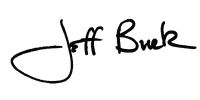
NHRA Did The Right Thing 9/7/05
For both Steve Johnson and Matt Smith this two-day drama had to be the most difficult time in their careers. Johnson knew he won by getting to the stripe first, which was confirmed over and over by the finish-line camera in front of potentially a couple of million viewers and confirmed by the ESPN2 commentators. Matt Smith probably knew that he didn't win the race, but the NHRA officials told him he did and gave him the coveted Wally in the winner's circle at the U.S. Nationals. Less than a day after the event was concluded NHRA officials had to call Matt Smith with the bad news and Steve Johnson with the good news. For Johnson that call had to be vindication, but as he told me yesterday, "No matter what the outcome of this is, I've lost the moment. Me and Larry Dixon used to hang out together as kids and talk about being in the winner's circle at Indy together. Now that probably will never happen. They can give me the win but they can't give me that moment back." The botched decision by the NHRA management team to believe their electronics instead of their own eyes both damaged the sport and the historic U.S. Nationals yet garnered both immense press coverage at the same time. Let's hope that the dramatic decision they made to reverse the first bad call will now result in Del Worsham and his CSK team, Dick LaHaie and Larry Dixon, Greg Anderson and Richie Stevens, and 68-year-old Gene Snow getting the recognition their dramatic performances warrant. Maybe now people will talk about those racers' stellar accomplishments instead of a blown call. The real legacy of this unfortunate turn of events should be that the NHRA (and the IHRA also) come to the realization that they need to take some extra care in the way their timing systems are set up. In the day and a half between the end of the race and the NHRA's decision to reverse the PSM results I received literally dozens of calls and emails from racers and fans relating to me stories and incidents where the system had failed, resulting in racers losing races they had actually won or racer receiving bogus time slips. There was an equal amount of examples in both the professional and sportsman categories. The incident at Indy has made a few things perfectly clear. First, electronic inconsistencies at the finish line are far more prevalent for all racers than anyone should be comfortable with. Second, according to expert racers and tech people I've talked with, the system can't be made perfect but it can be a lot better. I think that the NHRA should do what, as far as I know, every major racing league from the Breeder's Cup to NASCAR to the Indy 500 does and have a video camera at the finish line to resolve disputes such as this one. The outcome of these races -- which for most racers is a once-in-a-lifetime event -- is too important to just rely on a couple of photo cells and beams which are subject to human error. The NHRA made the absolute right call in the Steve Johnson case but they should take steps to improve a finish line system that is 35-40 years old. After all, what should they believe, the camera or their lyin' eyes?
|
|||||||||||||||||||||||||||||||||||||||||||||||||||||||||||||


 ust about 24 hours after the conclusion of the 51st U.S. Nationals the NHRA made an announcement unprecedented in the history of drag racing's most prestigious event. They reversed their previous decision concerning the winner of the Pro Stock Motorcycle class, taking the title away from Matt Smith and awarding the coveted title to Steve Johnson. That decision wasn't an easy one and the entire NHRA management team, including NHRA president Tom Compton and VP of Racing Operations Graham Light, deserve kudos for making the right decision.
ust about 24 hours after the conclusion of the 51st U.S. Nationals the NHRA made an announcement unprecedented in the history of drag racing's most prestigious event. They reversed their previous decision concerning the winner of the Pro Stock Motorcycle class, taking the title away from Matt Smith and awarding the coveted title to Steve Johnson. That decision wasn't an easy one and the entire NHRA management team, including NHRA president Tom Compton and VP of Racing Operations Graham Light, deserve kudos for making the right decision. 
